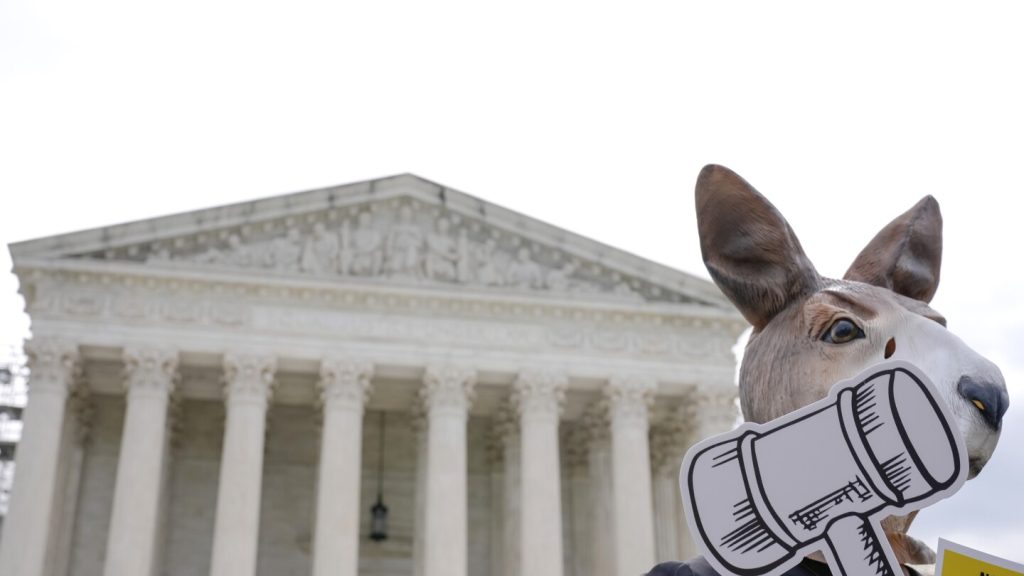The U.S. Supreme Court is currently considering Donald Trump’s bid to avoid prosecution for his efforts to overturn his 2020 election loss to Joe Biden. Trump’s lawyers argue that former presidents are entitled to absolute immunity for their official acts in order to prevent politically motivated prosecutions. Lower courts have rejected these arguments, and the timing of the Supreme Court’s decision may impact the outcome given Trump’s desire to delay the trial until after the November election.
During the arguments, the justices delved into the nuances of immunity and discussed the potential implications of their ruling on future cases involving former presidents. The court typically releases its opinions by the end of June, and the timing of their decision could be crucial in determining whether the trial will be delayed past the upcoming election. While some justices seemed skeptical of Trump’s claim of absolute immunity, others raised questions about whether former presidents should have some level of immunity.
The arguments highlighted the importance of the case not just for Trump’s situation, but also for setting a precedent for future presidential prosecutions. Justice Neil Gorsuch emphasized that the court is “writing a rule for the ages” with this decision, while Justice Brett Kavanaugh noted the far-reaching implications for the presidency and the country. Special counsel team lawyer Michael Dreeben clarified that the prosecution in this case would not necessarily open the floodgates to other criminal charges against future ex-presidents, citing past analyses by the U.S. government.
The heart of the case involves determining whether Trump’s actions were undertaken as a presidential candidate or as president, as well as the timing of the court’s ruling. Special counsel team attorney Michael Dreeben outlined the acts Trump is charged with and emphasized the distinction between official and personal actions. The justices appeared skeptical of Trump’s claims of absolute immunity, but the essential question of when they might reach a decision remains unclear, given the complexity of the case.
During the oral arguments, the justices employed metaphors and scenarios to delve into the legal complexities of the case. Chief Justice John Roberts used the metaphor of a “one-legged stool” to question the defense’s argument, while Justice Samuel Alito raised the idea of indicting a ham sandwich to illustrate the ease of securing indictments. The arguments also touched on the potential for presidents to preemptively pardon themselves if they fear prosecution after leaving office, highlighting the complex legal issues at play.
The Supreme Court has multiple paths to decide the case, including rejecting Trump’s immunity claim outright, declaring that former presidents may not be prosecuted for official acts, or sending the case back to a lower court for further evaluation. The presence of Justice Clarence Thomas, who has faced controversy over his wife’s actions related to the 2020 election, adds another layer of complexity to the proceedings. The outcome of the case will have significant implications for the future of presidential immunity and the prospect of prosecuting former presidents for their actions in office.


